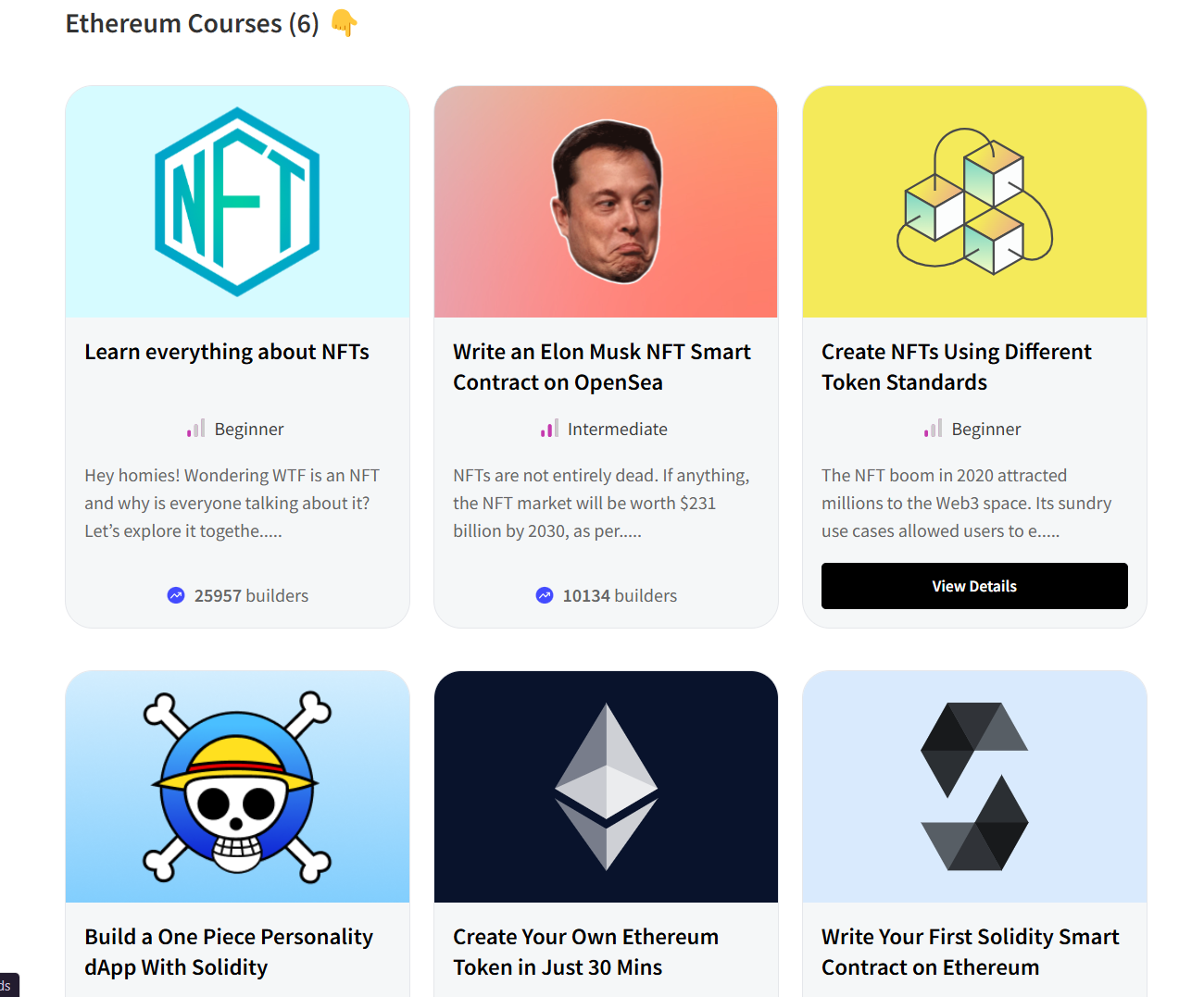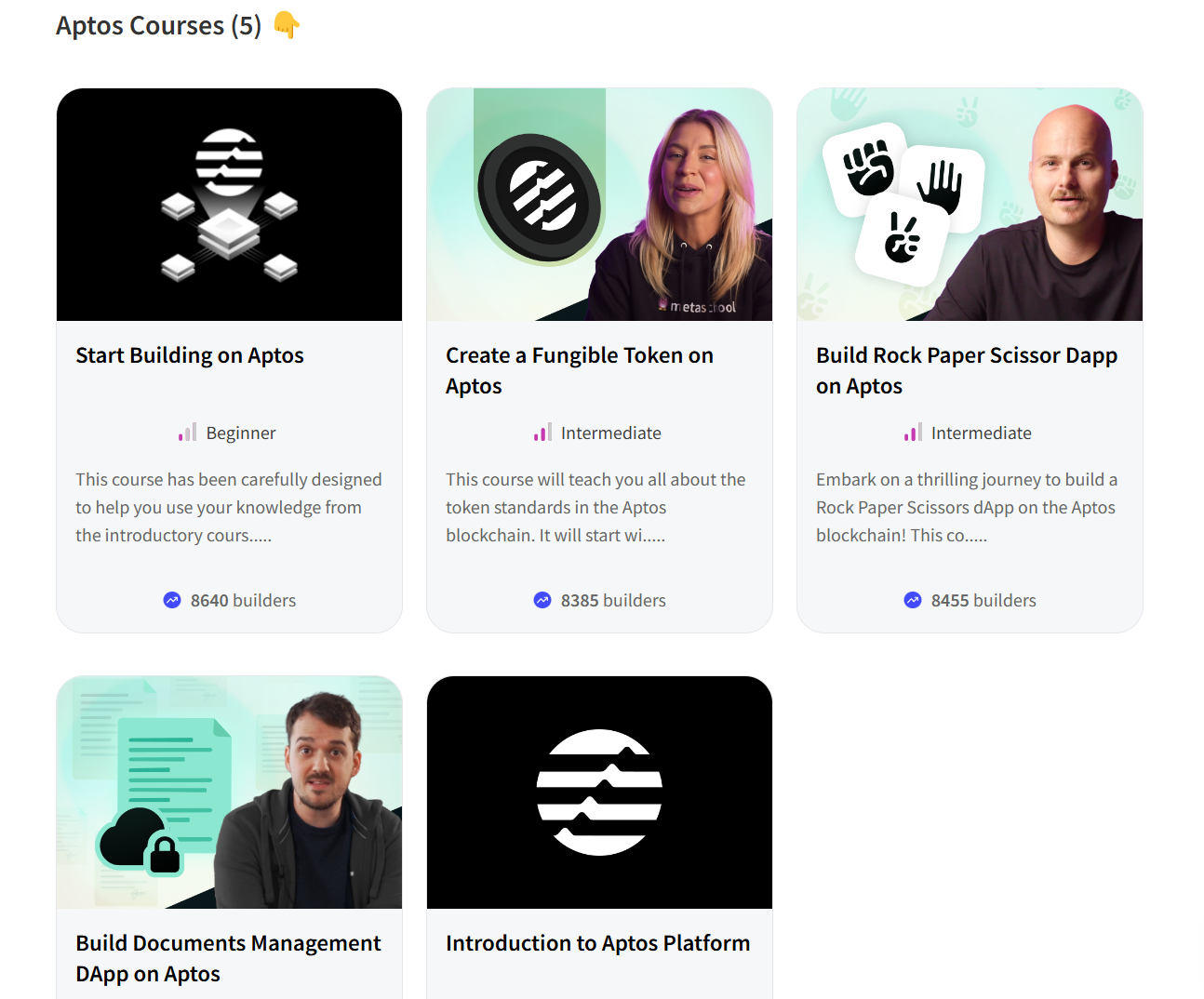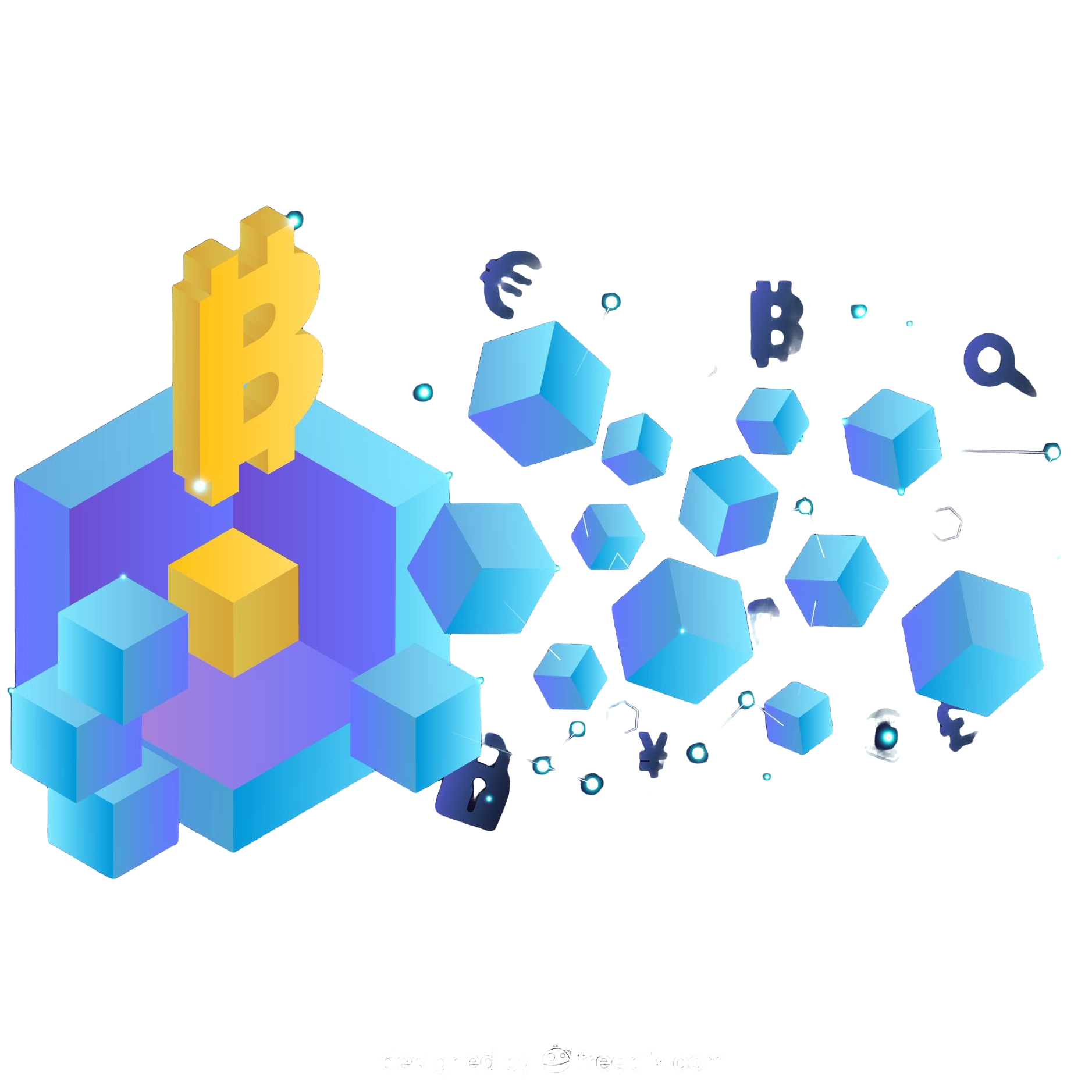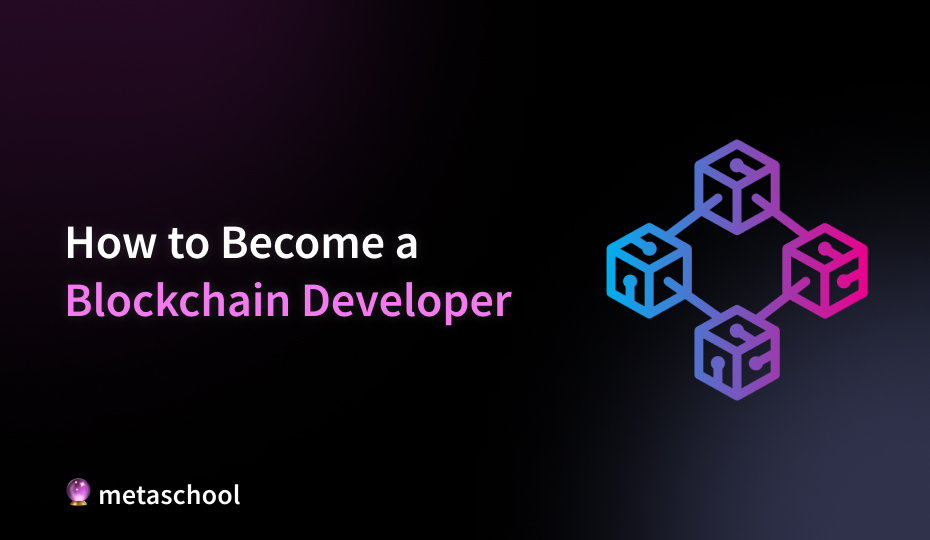Table of Contents
Curious about blockchain development and want to learn how to become a blockchain developer? Get to know the ins and outs of blockchain development and learn how to kickstart your journey towards becoming a blockchain developer in this comprehensive guide.
Blockchain development is a rapidly growing field with immense potential for individuals seeking exciting and lucrative career opportunities. In this article, we will explore the basics of blockchain technology, learn about blockchain development, see how it impacts various industries, and discuss how to become a successful blockchain developer. We will also explore what the future of blockchain development will look like. Whether you are a tech enthusiast, a software developer, or someone simply curious about the blockchain and web3 space, this article is for you.
What is Blockchain?
Blockchain technology is essentially a decentralized and distributed ledger system that securely records transactions across multiple nodes, making it tamper-proof and transparent. It eliminates the need for intermediaries, such as banks or servers, by enabling direct peer-to-peer transactions of information or money with trust and immutability.

One of the key features of blockchain technology is its use of cryptographic algorithms to secure the data stored within each block. Each block contains a unique hash that is created based on the data it contains and the hash of the previous block, creating a chain of blocks that are linked together. This cryptographic linkage ensures the integrity of the data and prevents unauthorized tampering. No single entity owns a decentralized public blockchain and hence cannot manipulate data on it.
Types of Blockchains: Public, Private, Consortium, and Hybrid
Originally there were only public blockchains like Bitcoin and Ethereum, but with advancements in technology and as the industry understood the value of blockchains a few varieties of blockchains were built for specific use cases. There are four types of blockchains:
- Public Blockchains
- Private Blockchains
- Consortium Blockchains
- Hybrid Blockchains
Let’s understand how these 4 types of blockchains are different from each other:
| Blockchain Architecture Type | Definition |
|---|---|
| Public Blockchain | ⦿ Decentralized and permissionless: Anyone can join these blockchains, build Dapps on them and deploy them, or host them on their own. ⦿ Allow all nodes to have the same access to the entire blockchain. ⦿ Most commonly used for mining and cryptocurrency. ⦿ Examples include: Dock, Bitcoin, and Ethereum. |
| Private Blockchain | ⦿ These blockchains are managed by private entities for their own limited use cases. ⦿ They are permissioned blockchains, which means a single entity controls the blockchain. ⦿ The owner dictates which functions the nodes can perform. ⦿ Hyperledger Fabric by Linux Foundation is a private blockchain for enterprises to develop blockchain products and solutions. |
| Consortium Blockchain | ⦿ These blockchains are managed by a group of organizations. ⦿ Examples include Hyperledger Fabric (Hyperledger GitHub implem, 2020) and Ethermint (Ethereum GitHub implement, 2020). ⦿ These consortiums are groups of companies that host, manage, and use a common blockchain that is not open to outside parties. |
| Hybrid Blockchain | ⦿ These blockchains are controlled by one entity and are similar to private blockchains; the only difference is that hybrid blockchains are overseen by a public blockchain. ⦿ Ripple, a B2B currency global exchange platform is an example of a hybrid blockchain. |
The Role of Blockchain in Today’s Digital World
Blockchain technology has emerged as a revolutionary force, impacting various sectors such as finance, supply chain, healthcare, and more. By providing enhanced security, transparency, and efficiency, blockchain is transforming how we transact and store data.
Blockchain technology is also being explored for its potential to enable new and improved business models compared to traditional ones. Smart contracts, which are self-executing contracts with the terms of the agreement directly written into code, are one example of how blockchain is revolutionizing the way agreements are made and enforced. These contracts automatically execute and enforce themselves when predefined conditions are met, reducing the need for intermediaries and streamlining processes.
What is Blockchain Development?
Blockchain development is a complex task that requires a deep understanding of various key components. These components serve as the building blocks of blockchain technology and play a crucial role in shaping its functionality and security. Cryptographic algorithms form the backbone of blockchain systems, ensuring data integrity and confidentiality through encryption techniques. Consensus mechanisms, such as Proof of Work or Proof of Stake, are essential for achieving agreement among network participants on the validity of transactions. Smart contracts, self-executing contracts with predefined rules, automate processes on the blockchain, enhancing efficiency and transparency. Decentralized applications (dApps) leverage blockchain technology to create innovative solutions across various industries, revolutionizing traditional business models.

What does Blockchain Developer do?
Blockchain developers develop and maintain blockchains, decentralized apps, and the functioning of the cryptocurrency and the network. The of blockchain developers can vary depending on which part of the blockchain development they are involved in. People who are building decentralized applications on top of Blockchains are more proficient in programming languages, interacting with blockchains, and ensuring efficient use of blockchain. Developers who are contributing to fundamental L1 Blockchain and L2 blockchains are well-versed in cryptography, game theory, mathematics, DevOps, system architecture, and more technically in-depth subjects.
Let’s talk about various roles for blockchain developers that you can learn and prepare for:
Fundamental Blockchain Developer
These developers are responsible for designing and implementing the architecture of blockchain systems. Their tasks include:
- Designing Blockchain Protocols: They create the rules and guidelines that govern the blockchain network, ensuring it operates securely and efficiently.
- Developing Consensus Protocols: Consensus protocols are crucial for maintaining the integrity of the blockchain. Core developers work on these protocols to ensure all nodes in the network agree on the state of the blockchain.
- Network Architecture: They design the overall network structure, ensuring it can handle transactions, data exchanges, and communications between nodes effectively.
- Security Implementations: Security is paramount in blockchain technology. Core developers implement cryptographic algorithms and protocols to protect the network from attacks
Blockchain Software Developer
Blockchain Software Developers build on top of this foundation. Their work involves:
- Developing Smart Contracts: Smart contracts are self-executing contracts with the terms directly written into code. Software developers create these contracts to automate processes and transactions.
- Creating Decentralized Applications (DApps): These are applications that run on blockchain technology. Software developers design and build DApps for various use cases, from finance to supply chain management.
- Integration and Maintenance: They integrate blockchain systems with existing applications and ensure they run smoothly. This includes troubleshooting, updating, and optimizing performance.
Why Consider Becoming a Blockchain Developer?
The role of blockchain developer is a challenging and rewarding role, you get to work on groundbreaking and latest technologies and solve hard problems. At the same time, there’s a larger cause of pushing the Internet towards an open, independent, user owned technology. Here are some other reasons why you should considering learning blockchain development:
Demand for Blockchain Developer
As businesses across various industries recognize the potential of blockchain technology, they’re seeking skilled developers to implement and maintain these systems. Whether it’s for secure financial transactions, transparent supply chains, or decentralized apps, the need for blockchain expertise is growing.
Blockchain Developer Salary
According to recent reports, the average salary for a blockchain developer ranges from $100,000 to $150,000 per year, with top developers earning even more. This financial incentive makes it an attractive career choice.
According to recent reports, the average salary for a blockchain developer ranges from $100,000 to $150,000 per year, with top developers earning even more. This financial incentive makes it an attractive career choice.
Fast Growing and Evolving Field
Developers in this field are often at the forefront of technological advancements, working on cutting-edge projects that have the potential to transform entire industries.
How to Become a Blockchain Developer
Becoming a successful blockchain developer requires a combination of technical and soft skills. Proficiency in programming languages such as Solidity, Python, or JavaScript is essential, along with a strong understanding of cryptographic principles and data structures. Additionally, problem-solving, analytical thinking, and teamwork skills are valuable in navigating complex blockchain projects.
Understanding blockchain technology goes beyond just coding. It involves grasping the decentralized nature of blockchain networks, consensus algorithms, and smart contracts. A keen eye for detail is crucial when auditing and securing smart contracts to prevent vulnerabilities and ensure the integrity of the blockchain ecosystem.
1. Understanding Key Components of Blockchain Development
Blockchain development involves several key components that make up the foundation of the technology. These include cryptographic algorithms, consensus mechanisms, smart contracts, decentralized applications (dApps), and more. Understanding these components is crucial for aspiring blockchain developers.
While there is no standardized educational path for blockchain development, having a degree in computer science or a related field can provide a strong foundation. However, the rapidly evolving nature of blockchain technology makes continuous learning and staying updated crucial. Online courses for blockchains, hackathons, workshops and events, and participating in blockchain communities can help expand your knowledge and network within the industry.
2. The Process of Creating a Blockchain
Creating a blockchain is a meticulous process that requires careful planning and execution at each stage. It begins with defining a clear problem statement that the blockchain aims to solve, identifying the target user base, and outlining the features and functionalities. The next step involves designing the architecture of the blockchain network, including the data structure, consensus algorithm, and network topology. Selecting the appropriate blockchain platform, whether it be Ethereum, Hyperledger, or others, is crucial for aligning the technology with the project requirements.
Developing and testing the code is a critical phase where developers write and debug the smart contracts, implement business logic, and conduct extensive testing to ensure the system functions as intended. This stage often involves collaboration between developers, auditors, and stakeholders to address any vulnerabilities or inefficiencies. Finally, deploying the blockchain network involves launching the system on the selected platform, configuring nodes, and establishing network connectivity. Continuous monitoring and maintenance are essential post-deployment to ensure optimal performance and security.
3. Required Skill for Blockchain Development
Software Development / Programming: Read out the guide on how to become a software developer, a strong foundation in software development and programming is essential.
Programming Languages: Learn some of the most commonly used languages including Solidity for Ethereum smart contracts, Go and Rust for blockchain architecture, and JavaScript for building decentralized applications (DApps).
Cryptography: Understanding cryptographic principles, including encryption, hashing, and digital signatures, is crucial for developing secure blockchain systems.
Smart Contracts: Learning how to write smart contracts, particularly in Solidity, is vital for creating automated, transparent, and trustless applications on the blockchain. Smart contracts can handle everything from simple transactions to complex workflows.
DSA: Blockchain systems rely on various data structures like Merkle trees, hash tables, and graphs. Mastering DSA helps in optimizing these structures for better performance and scalability of the blockchain.
Blockchain Architectures: Knowledge of different blockchain architectures is essential for understanding how various blockchain systems function. This includes public blockchains like Bitcoin and Ethereum, private blockchains for enterprise solutions, and hybrid models that combine elements of both.
Enroll in Free Blockchain Courses on Metaschool
Hands-on experience is invaluable in the journey to becoming a blockchain developer. Building projects, contributing to open-source initiatives, and attending hackathons can provide practical knowledge of real-world blockchain applications. Collaborating with industry professionals, engaging in peer code reviews, or building side projects on blockchains can offer valuable feedback and insights to enhance your skills and understanding of blockchain development.
Here are some of the top free blockchain courses on Metaschool that you can enroll in:
Learn to Build on Ethereum Blockchain

More than 50,000 students and developers have enrolled in Ethereum blockchain development on Metaschool. You can enroll in a course of your choice, follow the guided learning approach, and by the end of the course you’d have learned a lot of things about blockchain development. Some popular courses on Metaschool to learn blockchain development on Ethereum are:
- How Does Ethereum Work? A Deep Dive
- Write Your First Solidity Smart Contract on Ethereum
- Create your own Ethereum token in 30 mins
Enroll in Free Aptos Blockchain Courses on Metaschool

Aptos is a Layer-1 Blockchain and one of the most popular blockchains in the web3 ecosystem. Having raised more than $350M, Aptos blockchain foundation is set to build a large ecosystem on its L1 blockchain. This is a great ecosystem to be a part of as a new blockchain developer. Here are free guided Aptos courses on Metaschool that you can enroll in and learn from:
- Introduction to Aptos Platform
- Create a Fungible Token on Aptos
- Build Rock Paper Scissor Dapp on Aptos
Participate in Other Blockchain Development Courses
Metaschool offers free and guided courses in more than 15 blockchains and protocols. To become a blockchain developer, the best approach is to enroll in free hands-on courses in the choice of your blockchain. You can find courses on Core, Mantra, Sui, Polygon, Solana, and many more blockchains on Metaschool.
The Impact of Blockchain Development on Various Industries
Blockchain in Finance and Banking
The financial and banking industry has witnessed significant disruption due to blockchain technology. Blockchain-based solutions offer secure and transparent financial transactions, simplifying cross-border payments, reducing fraud, and improving the overall efficiency of banking operations. As a blockchain developer, you can play a pivotal role in shaping the future of finance and banking.
Furthermore, blockchain technology has the potential to revolutionize traditional banking systems by providing a decentralized platform for conducting transactions. This decentralized nature eliminates the need for intermediaries, reducing costs and processing times for both financial institutions and customers. By leveraging smart contracts on the blockchain, banks can automate various processes such as loan approvals, trade settlements, and compliance checks, leading to increased operational efficiency and customer satisfaction.
Blockchain in Supply Chain and Logistics
The supply chain and logistics sector has embraced blockchain for its ability to enhance traceability, improve transparency, and streamline processes. With blockchain, stakeholders can track and verify the movement of goods in real-time, eliminating counterfeiting, ensuring product authenticity, and reducing delays. As a blockchain developer, you can contribute to revolutionizing global supply chain operations.
In addition to its tracking capabilities, blockchain technology also enables the creation of more sustainable and ethical supply chains. By recording every step of a product’s journey on the blockchain, companies can ensure compliance with environmental and labor regulations, as well as provide consumers with detailed information about the origins of the products they purchase. This level of transparency not only builds trust among consumers but also drives companies to adopt more responsible practices throughout their supply chains.
The Future of Blockchain Development

Emerging Trends in Blockchain Technology
As blockchain continues to evolve, several emerging trends are shaping its future. These trends not only demonstrate the versatility of blockchain technology but also highlight the potential for innovation and disruption in various industries.
- Interoperability: One of the key trends is the interoperability between different blockchain platforms. As the number of blockchain networks continues to grow, the ability to seamlessly connect and exchange data between these platforms becomes crucial. Interoperability enables developers to leverage the strengths of different blockchains, creating a more robust and interconnected ecosystem.
- Defi: Another significant trend is the rise of decentralized finance (DeFi). DeFi refers to the use of blockchain technology to recreate traditional financial systems in a decentralized manner. This trend has gained traction in recent years, with various DeFi applications offering services such as lending, borrowing, and trading without the need for intermediaries. The potential for financial inclusion and disruption of traditional banking systems makes DeFi an exciting area for blockchain developers.
- AI + Web3: Integrating blockchain with emerging technologies like artificial intelligence (AI) is a huge trend to watch out for. By combining blockchain’s immutability and transparency with AI’s analytical capabilities, developers can create innovative solutions for supply chain management, data security, and more.
- Scalability: Lastly, the ongoing development of scalable blockchain solutions is crucial for the widespread adoption of blockchain technology. Scalability has been a challenge for many blockchain networks, limiting their capacity to handle a large number of transactions. However, with advancements in technologies like sharding and layer-two solutions, developers are working towards creating scalable blockchain platforms that can support global-scale applications.
Potential Challenges and Solutions in Blockchain Development
While blockchain technology offers immense potential, it also presents various challenges that developers need to address. Understanding these challenges and actively seeking solutions is essential for the continued growth and success of the blockchain industry.
- Scalability is one of the primary challenges faced by blockchain developers. As the number of users and transactions increases, the scalability of blockchain networks becomes a critical factor. To overcome this challenge, developers are exploring techniques like sharding, which involves dividing the blockchain into smaller parts to increase throughput.
- Privacy is another challenge that needs to be addressed in blockchain development. While blockchain offers transparency and immutability, it also raises concerns about the privacy of sensitive data. Developers are working on privacy-enhancing technologies like zero-knowledge proofs and secure multiparty computation to ensure data confidentiality while maintaining the benefits of blockchain.
- Regulatory compliance is another area of concern for blockchain developers. As blockchain technology disrupts traditional industries, regulatory frameworks need to evolve to accommodate its unique characteristics. Collaborating with legal experts and actively engaging with regulatory bodies can help navigate this complex landscape and ensure compliance with relevant laws and regulations.
- Energy consumption is also a challenge associated with blockchain technology. The consensus mechanisms used in many blockchain networks, such as proof-of-work, require significant computational power and energy consumption. Developers are exploring alternative consensus mechanisms like proof-of-stake, which can reduce the environmental impact of blockchain networks.
FAQs
What does a Blockchain developer do?
A Blockchain developer is responsible for designing, implementing, and maintaining blockchain systems and applications. This includes creating blockchain protocols, programming smart contracts, building DApps, and ensuring the security and performance of the blockchain network. They work on both the core architecture and the software that runs on top of it. Depending on your interest area and programming skills, you can opt to specialise in either becoming a code blockchain protocol developer or become an expert in building decentralised applications on top of other blockchains.
Does a Blockchain developer need coding?
Yes, a Blockchain developer needs strong coding skills. Proficiency in programming languages such as Solidity, Go, Rust, and JavaScript is crucial. Developers use these languages to write smart contracts, develop DApps, and implement blockchain protocols. Coding knowledge is essential for creating, testing, and debugging blockchain applications.
What is the salary of a blockchain developer?
The avg salary for a blockchain developers is from $100,000-$150,000 annually. Highly skilled blockchains developers can command an even higher more, depending on their skills, experience, and the complexity of the projects they work on.
Is blockchain developer a good career?
Yes, becoming a blockchain developer is a good career choice. The demand for blockchain developers has grown significantly over the last decade. With new protocols coming in, the demand is expected to grow continnously. Also, as more tech companies and industries seee the potential of blockchain technology enhancing their existing tech stack and products, they will look to hire skilled blockchain developers. The field offers lucrative salaries, helps you become a better computer science person, and the chance to work on large transformative projects.
